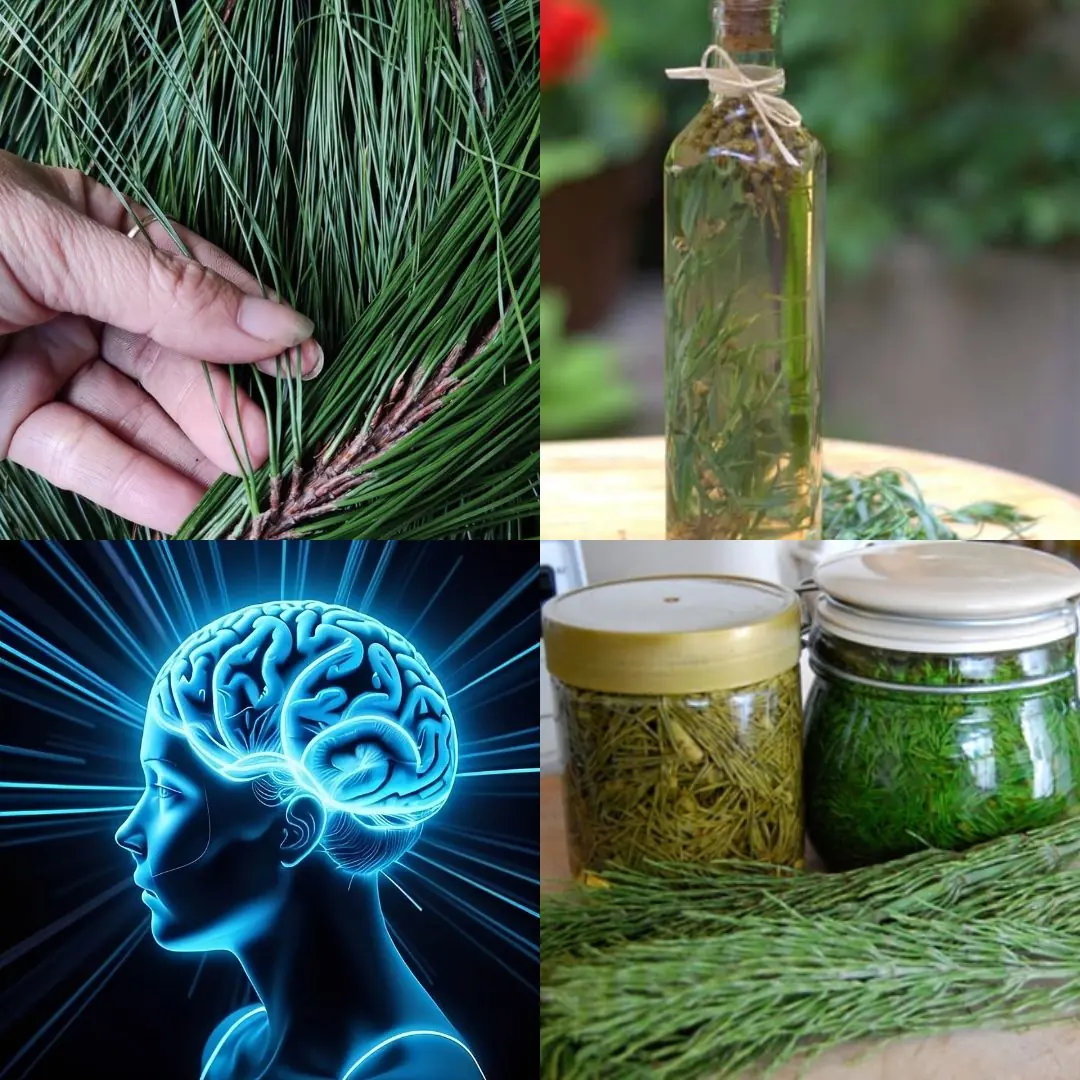
9 foods to eat regularly to help protect memory and keep your brain sharp as you age
Keeping your brain healthy is about more than one “miracle” nutrient — it’s a pattern of eating and other lifestyle choices that reduce inflammation, support blood flow, supply steady energy to neurons, and provide antioxidants that protect brain cells. Below are nine everyday foods the Vietnamese article highlights, rewritten in English with extra context and links to what research says about each choice.
1. Wild (or fatty) salmon — an omega-3 boost for your brain
Fatty fish such as salmon are rich in DHA and EPA, long-chain omega-3 fatty acids that help build and maintain neuronal membranes, reduce inflammation and support brain blood flow. Observational studies and dietary analyses link regular fish intake to lower rates of cognitive decline; most experts recommend eating fatty fish at least twice a week as part of a brain-healthy pattern. (Harvard Health; omega-3 reviews). Harvard Health+1
2. Whole-grain oats — steady glucose for thinking power
Whole grains (oats, brown rice, whole wheat) provide slow-release carbohydrates and fibre, giving the brain a steady supply of glucose without the sugar spikes that can harm cognition over time. Population studies associate whole-grain patterns with better vascular and metabolic health — both important because good heart and blood-vessel health supports long-term brain function. (Harvard Health; whole-grain cognition research). Harvard Health+1
3. Nuts (walnuts, almonds, seeds) — vitamin E, healthy fats and more
Nuts are compact nutrient packages: vitamin E, unsaturated fats, magnesium and plant polyphenols. Vitamin E in particular is an antioxidant that protects neurons from oxidative damage; some studies suggest higher dietary vitamin E associates with slower cognitive decline. Walnuts also provide plant-based omega-3 (ALA) and have been linked to cognitive benefits in several trials. (Vitamin E reviews; MIND/Mediterranean diet evidence). PMC+1
4. Legumes (beans, lentils, soy) — low-GI carbs and plant protein for the brain
Legumes supply steady glucose, fibre, and plant protein — useful because the brain relies on a constant fuel supply and because metabolic disease (diabetes, insulin resistance) raises dementia risk. Some cohort studies have shown higher legume intake correlates with better cognitive scores or slower decline. Including a small bowl of beans or lentils regularly is an easy, affordable brain-healthy habit. (Mazza review; dietary pattern research). PMC+1
5. Blueberries — concentrated flavonoids and antioxidant protection
Blueberries (and other berries) are rich in flavonoids — especially anthocyanins — that reduce oxidative stress and inflammation and may improve neuronal signalling. Several observational studies and smaller clinical trials report associations between regular berry intake and slower memory decline or modest improvements in short-term memory in older adults. (Devore berry cohort; Harvard/flavonoid reporting). PMC+1
6. Avocado — monounsaturated fats for blood flow and cognition
Avocados are high in monounsaturated fats, fibre and potassium; those nutrients support healthy blood pressure and circulation, which in turn nourishes the brain. Some population studies have found better cognitive test scores among regular avocado consumers, though the benefit likely comes as part of an overall healthy diet (e.g., Mediterranean-style patterns). (Harvard School of Public Health; avocado cohort study). hsph.harvard.edu+1
7. Pomegranate (and pomegranate juice) — polyphenols that may help memory
Pomegranate contains polyphenols and antioxidants that have shown promise in animal and small human trials for protecting memory and lowering markers of oxidative stress. A randomized trial suggested that daily pomegranate juice helped stabilise some learning measures over a year in older adults — encouraging but not definitive, so consider pomegranate as a useful, antioxidant-rich addition rather than a cure. (Randomized pomegranate study; clinical trial listings). PubMed+1
8. Dark (high-cocoa) chocolate — flavanols, blood flow and short-term cognition
Dark chocolate and cocoa contain flavanols that improve endothelial function and cerebral blood flow; short-term trials have found improvements in attention, processing speed or mood after cocoa flavanol consumption. Keep portions small and choose high-cocoa products with lower added sugar — the evidence supports occasional, measured consumption for potential cognitive and cardiovascular benefits. (Cocoa flavanol reviews; Alzheimer’s Discovery guidance). PMC+1
9. Green tea — catechins and L-theanine for focus and brain protection
Green tea is a source of catechins (EGCG) and the amino acid L-theanine; together these compounds can improve attention, reduce stress, and show antioxidant and anti-inflammatory effects in lab and human studies. Longitudinal research from Japan suggests habitual green-tea drinking is associated with slower cognitive aging, though tea is one part of a healthy lifestyle rather than a standalone fix. (Japanese cohort research; Harvard/green tea summaries). Harvard Health+1
Putting these foods into practice (extra, practical tips)
• Think pattern, not single foods: the best evidence for preserving memory comes from overall dietary patterns (Mediterranean/MIND diets) that emphasise many of the items above — fish, nuts, whole grains, beans, fruit and vegetables, legumes and olive oil. (Harvard Health; Alzheimer’s MIND diet summaries). Harvard Health+1
• Aim for variety: rotating different berries, nuts, legumes and fish types spreads beneficial compounds and reduces contaminant risk (e.g., vary fish to lower mercury exposure). (Harvard Health; seafood guidance). Harvard Health+1
• Food first, supplements second: many trials find whole-food intake (eating fish, nuts, fruit) is more consistently linked to benefit than isolated supplements; if you consider supplements (omega-3s, vitamin E), discuss them with your clinician. (Harvard Health; omega-3 review). Harvard Health+1
• Combine diet with other steps known to protect the brain: regular physical activity, good sleep, social engagement, blood-pressure control and not smoking all matter as much as diet. (Mayo Clinic; Alzheimer’s Association guidance). Mayo Clinic Health System+1
Bottom line: Eating fatty fish (like salmon), whole grains, nuts, legumes, blueberries, avocado, pomegranate, dark chocolate in moderation, and drinking green tea — as part of an overall Mediterranean/MIND-style pattern — is strongly consistent with what researchers and public-health organisations recommend to help protect memory and brain function with age. No single food guarantees protection, but a varied, plant-forward diet plus healthy lifestyle habits gives you the best odds for long-term cognitive health. (Harvard Health; Mayo Clinic; PubMed reviews). Harvard Health+2Mayo Clinic Health System+2
News in the same category


Reason why Donald Trump had 'no chance' at winning' Nobel Prize despite his claims 'he deserved it'

The tiny round hole on your nail clipper has a real job — and a few clever (safe) extras

Pork skin: the cheap cut many people discard — and how to use it wisely for nutrition and safety

Boiled sweet potatoes: don’t use plain water—add a spoon of this for fluffy, deeply sweet results

3 powerful health benefits of using a bidet — plus a bonus for the planet

How to store fresh ginger so it lasts for months (even without a fridge)

A U.S. doctor’s simple steps to “clear” pesticides and dirt from fruit — and the science behind them

Do not drink water immediately after eating fruit — here’s what nutrition science actually says

‘Shuts TF Up’: Scott Jennings’ Unhinged Back and Forth with Abby Phillip Takes a Turn When Van Lathan Begins to Speak

Simone Biles Receives Honorary Doctorate Degree From Washington University

Kevin Howell Named NC State’s First Black Chancellor, 40 Years After Making History as First Black Student President

Holly Robinson Peete Pays Tribute to Late Father Who Was a Star on Sesame Street

Jamal Roberts Makes History as First Black Man to Win American Idol in Over 20 Years

NiJaree Canady Makes History as First Million-Dollar College Softball Player

Megan Thee Stallion & ‘Boondocks’ Producer Carl Jones to Launch New Anime Series on Prime Video

Keep rice weevil-free all year: two simple tricks — plus evidence and safer pantry practices

7 pantry items that really don’t spoil — and how to store them so they stay great

8 instant, drug-free ways to stop motion sickness — rewritten, expanded and evidence-backed
News Post

Papa’s Soft Side: Bruce Pearl’s Greatest Legacy Isn’t on the Court

Raja the “Tax Collector”: Sri Lanka’s Gentle Giant Who Stops Cars for Snacks.

One Year of Courage: Branson’s Brave Battle.

Tala’s Second Chance: Fighting for Life Against All Odds

From Patient to Daughter: The Miracle of Ella.

The Promise He Kept: A Teacher, a Dress, and a Second Chance.

The Woman Behind the Green Face: Margaret Hamilton’s Quiet Legacy.

A Boy, a Dog, and the Courage to Care 💛🐾

I Went to Pick Up My Wife and Newborn Twins from the Hospital — I Found Only the Babies and a Note

Father Finds out His Twin Sons Are Actually His Brothers — Story of the Day

78-Year-Old Woman Returns from Nursing Home to Her House – Only to Find a Mansion with Changed Locks in Its Place

My Wife and I Went to an Orphanage to Adopt a Child and Found a Girl Who Is a Carbon Copy of Our Daughter

4 foods to eat on an empty stomach in the morning to cleanse the gut, boost digestion, and lower cancer risk

7 Ways to Repurpose Eggshells for a Greener Home and Garden

The One McDonald’s Burger That’s Always Cooked Fresh

Pine Needle Sprite: A Refreshing Homemade Fermented Drink

10 Simple Ways to Help Your Body Detoxify and Cleanse Itself

Top 6 Upcoming Astronomical Events You Don’t Want to Miss in 2025

Never Ignore Excessing Licking From a Dog
